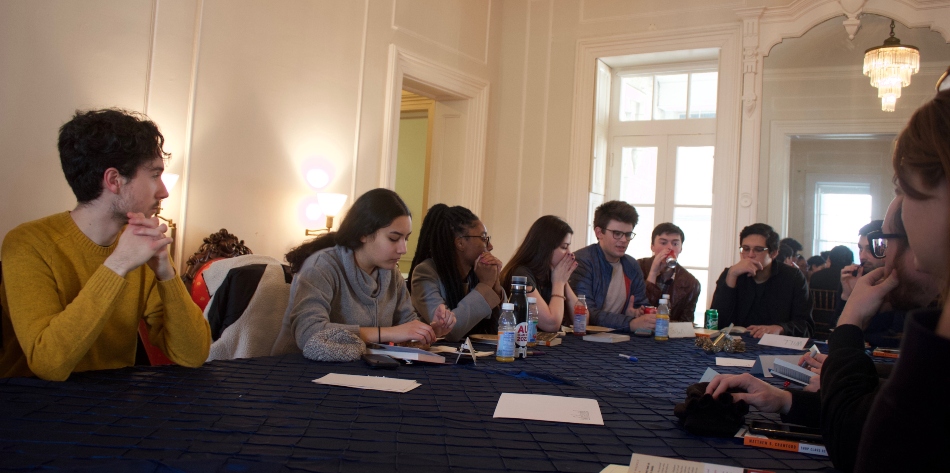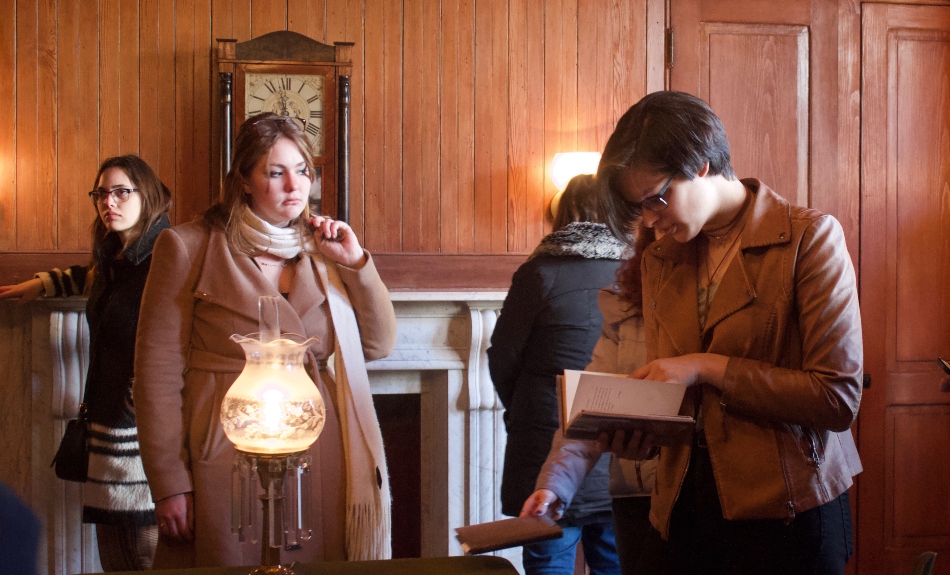Contact Us
Core Courses

The Examined Life - CORE-105
Socrates argues that “the unexamined life is not worth living.” What can this possibly mean? In an age of polarization and persistent blindness to the claims and perspectives of the other, it is imperative to revisit Socrates’s connections between wisdom, human flourishing, and reflection. Through complex texts by Plato, Augustine, Mary Shelley, Frederick Douglass, and others, we consider a range of assumptions of what counts as a human and virtuous life, all with a view to self awareness and self criticism of what we value and why.
Individual Freedom vs. Authority - GOVT-105
The study of major philosophical discussions of the conflict between individual freedom and authority with analysis of the relation between this conflict and the problem of organizing a government.
Roots of Political Economy - GOVT 205
Debates about political economy are at the heart of our political life. Is capitalism a defensible and sustainable social order or should it be supplemented or replaced by something else; does the commercial republic of John Locke and Adam Smith do justice to human dignity and aspirations, or do we need to look to Rousseau’s participatory republic or Marx’s vision of communism? This course helps students think through the fundamental choices about political economy through the close study of some foundational texts by Adam Smith, Marx, Keynes, and Hayek, among others. Students read these texts closely and engage in substantive discussions of their meanings in order to help clarify their thinking about these questions.
Literature and the Ethical Life - LIT 262
Many of the best-known texts of Western literature are deeply engaged with questions of justice, politics, and the good life. This course explores what kind of human being is the most praiseworthy, how gender and race shape the lives that are possible for us to lead, and what true freedom looks like, as well as related questions through the close reading of classic works of literature. The course encourages sensitivity to texts as well as thoughtfulness about the moral and political dilemmas exemplified by them.
Example 1 Credit Courses

Working as a Political Theorist
This course supplements the political theory curriculum by introducing students to professionals in think tanks, journalism, nonprofits, and education who have significant political theory interests. Students participate in discussion groups and read supplemental texts related to the lectures and debates sponsored by the Political Theory Institute (PTI) and have private meetings with its speakers. Students work on professional skills and get advice about career options.
Political Theory: Issues/Texts
In this course students explore contemporary debates in political theory by meeting with visiting scholars and public intellectuals from across the country. They participate in discussion groups and read supplemental texts related to lectures sponsored by the Political Theory Institute (PTI) and have private meetings with its speakers.
